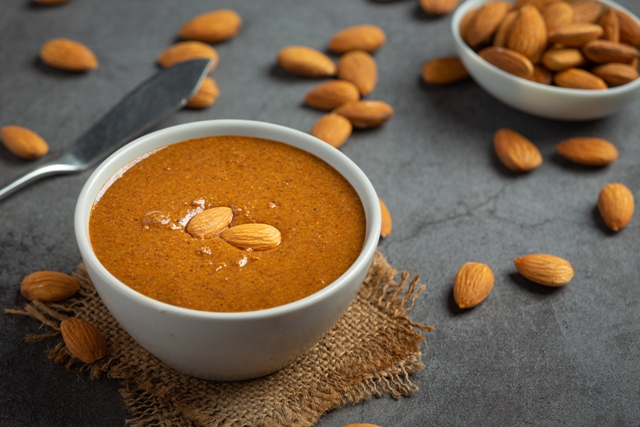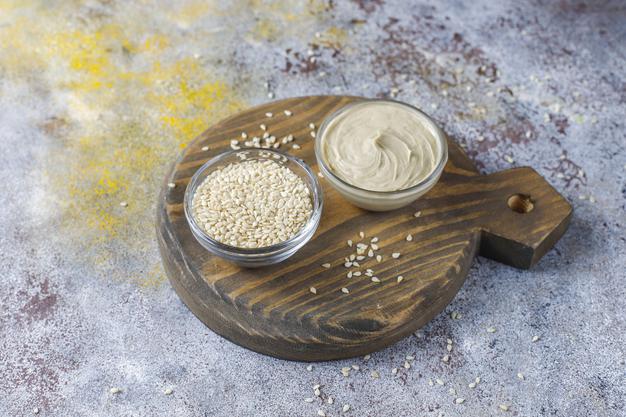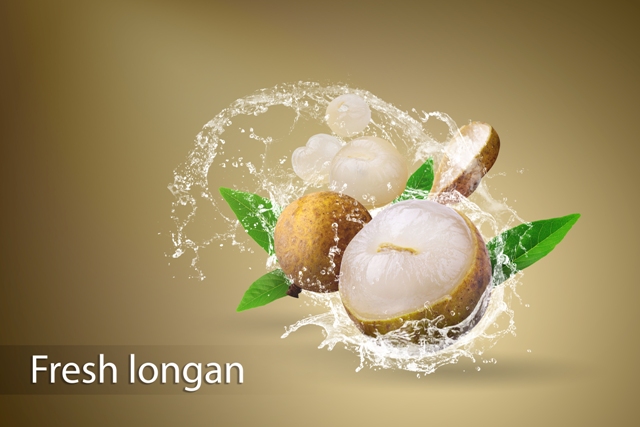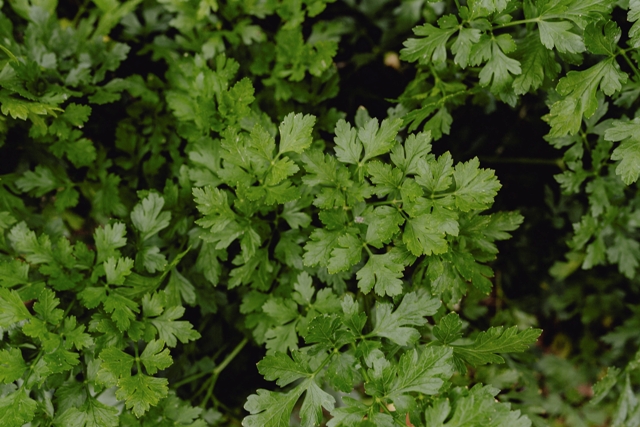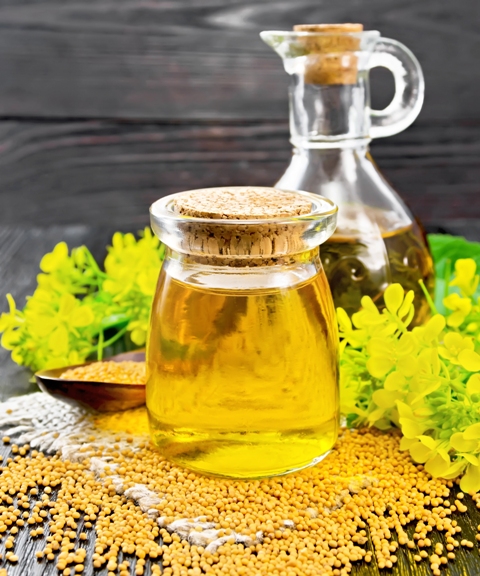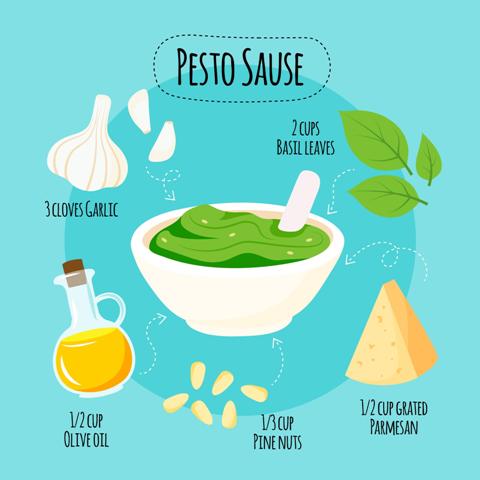Butter, which is prepared from roasted and ground almonds, is generally termed as almond butter. It is extremely nutritious and has been widely used for various therapeutic purposes.
Nutritional profile
Carbohydrates and fibre
- It contains desirable amount of carbohydrate and mainly composed of fibre
- Glycemic load of peanut butter is not so high due to its fibre content thus it can be easily incorporated in the diet of diabetic patients
Proteins
- It contains significant amount of protein
- It is composed of various important amino acids
- It is significantly rich in L-arginine
Fats
- It contains adequate amount of fat and mainly composed of unsaturated fatty acids thus it is considered as healthy fat food
- It contains both monounsaturated fatty acids and polyunsaturated fatty acids
- It contains lesser amount of saturated fat as well
Calorie
- It provides sufficient calories on its oxidation
- Most of the calories come from its fat and carbohydrate contents

Micronutrients

- It is loaded with various imperative micronutrients that offer numerous health benefits
- It contains significant amount of Vitamin E, Vitamin A, pyridoxine and folate
- It is also packed with several vital trace elements like calcium, magnesium, manganese, potassium, iron, zinc, selenium and copper
Biologically active components
- It contains desirable amount of flavonoids and polyphenols that offer various nutraceutical activities
Health benefits
Role on digestive health
- Consumption of almond butter is extremely beneficial for improving overall digestive health
- Its fibre content plays imperative role in promoting regularity
- Its antioxidant and anti-inflammatory activities are responsible for protecting the digestive tract from damages as a result reduce the risk of developing gastrointestinal disorders
- Its probiotic components are also accountable for increasing the number of intestinal beneficial microbes, which help to improve gut health. On the other hand fibre and probiotics present in almond butter ferment by intestinal microbes that produce butyrate, which subsequently improves gut barrier function
- It is also related with improving colonic health
Role on skeletal system
- Consumption of almond butter is very useful for maintaining a healthy skeletal system
- It contains significant amount of calcium, which helps in healthy bone formation
- Magnesium is another important component of almond butter, responsible for promoting skeletal system as it helps to increase calcium uptake by body that helps in strengthening skeletal health
- It helps in bone mineralization, which ultimately helps to increase bone mineral density. It is also associated with improving bone mass. Thus its consumption is thought to be very effective for preventing bone thinning as a result lowers the risk of bone fractures

Role on nervous system
- It helps in improving the health and functionality of both central as well as peripheral nervous system
- Its Vitamin E component plays vital role in slowing down the progression of aging process of brain cells, which ultimately helps in improving memory
- Its anti-inflammatory activity is also responsible for delaying the onset of neuro-inflammatory events that significantly lowers the prevalence of neurological disorders
- Its omega 3 fatty acid content plays vital role in improving brain’s activity
- Vitamin B6 component of almond butter is considered as one of the most important components that not only helps in brain growth but also helps to stimulate the production of neurotransmitter, which is responsible for improving communication between brain cells
- Moreover almond butter is considered as an imperative therapeutic substance that helps in keeping the brain sharp as well as healthy
Role on weight management

- Though it is not low in fat and calories but interestingly its consumption helps in decreasing body weight
- It helps in decreasing blood cholesterol concentration too. It is associated with preventing visceral obesity by reducing total fat percentages of the body
- It plays significant role in reducing abdominal fat as well
- Its high protein content and fibre content play imperative role in preventing obesity as they help in delaying stomach emptying, which decrease appetite hence reduce over consumption as a result making weight reduction relatively easier
- Its polyunsaturated fatty acid contents is also responsible for decreasing appetite as it helps to alter hormones, which are accountable for influencing appetite and leads to weight reduction
Role on skin
- We know that beauty begins from inside out and it is absolutely true that what we eat that impacts on how we feel and how we look. If our diet is composed of sugary foods or junk foods or spicy foods then our skin will suffer. So it is better to replace our favorite chips or cookies with nuts or nut butter, as it help to make a large difference
- Consumption of almond butter is extremely useful for making the skin healthy as it contains various imperative nutrients that help to provide appropriate nourishment to the skin
- Vitamin E, Vitamin B complex, copper and zinc components of almond butter play vital role in keeping the integrity of the skin
- Its Vitamin E component is also responsible for delaying the progression of ageing process
- Antioxidant activity of almond butter is associated with protecting the skin from free radical induced oxidative damages, which plays imperative role in decreasing the prevalence of dermal disorders
- It helps to enhance skin glow
- It is also associated with moisturizing the skin

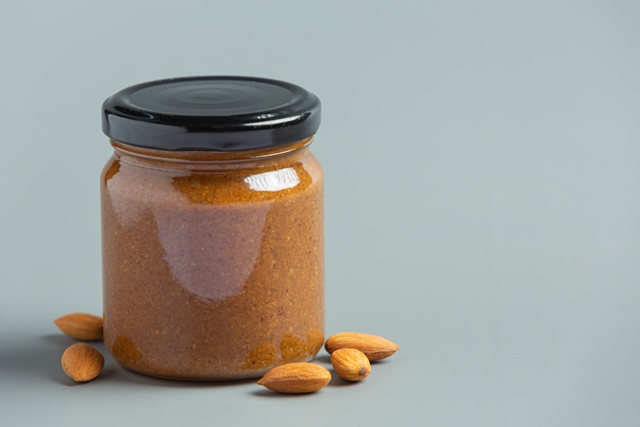
Therapeutic uses
It has been extensively used for various therapeutic purposes, which include –
- Its fibre content plays important role in decreasing cholesterol concentration within body. It is mainly effective for decreasing the concentration of LDL, VLDL and triglyceride, which ultimately helps in decreasing the risk of various chronic diseases. Whereas it’s unsaturated fatty acid contents help in increasing the level of HDL that provides a positive impact on health
- It is also related with boosting up the immunological responses of the body. It helps to protect every immune cell from oxidative damages as a result helps in sustaining their activity, which ultimately helps in strengthening the defense mechanism of body
- It is also considered as a cardio friendly food. Its unsaturated fatty acid contents, fibre content and micronutrient components are responsible for promoting cardiac health and functionality
- Its cholesterol lowering effect is also accountable for reducing the prevalence of atherosclerosis as it helps to inhibit fat deposition within blood vessels, which subsequently lowers the risk of coronary artery disease and also helps in promoting endothelial functionality
- Its potassium content plays significant role in preventing hypertension
- Its magnesium content is responsible for averting arrhythmia
- Its protein components play vital role in the growth and development of muscles
- Its consumption is thought to be very effective during gestation as well, due to its folate content
- It helps in repairing cellular damages as well

Culinary uses
- It can be consumed with protein shake and smoothie
- It can be spread on pancake, waffles and toast
- It can also be mixed with Greek yogurt before consumption
- It can be used for preparing energy bars as well
- It can be used in dressings too
- It can also be used for preparing soup
Risk factors
- Almond butter is extremely health worthy but its oxalate component may cause some health hazards. Individual with kidney stone should avoid its consumption due to its oxalate component
- Individual who have tree nut allergy should also avoid its consumption
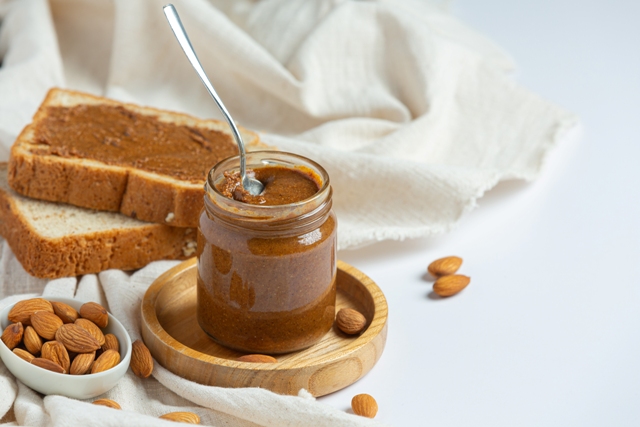
Source:
Chaker, A.M., 2015. Alternatives to peanut butter are taking over lunch. The Wall Street Journal.
Kiefer, D., 2007. Benefits for Body Weight, Heart Health, and More. Maio de, pp.83-85.
Lapsley, K.G. and Huang, G., 2004. Health benefits of almonds. Cereal foods world, 49(1), p.6.
Mushtaq, A., Khaliq, M., Saeed, A., Azeem, M.W. and Ghania, J.B., 2015. Almond (Purunus amygdalus L.): A review on health benefits, nutritional value and therapeutic applications. International Journal of Chemical and Biochemical Sciences, pp.103-106.
Spiller, G.A., Miller, A., Olivera, K., Reynolds, J., Miller, B., Morse, S.J., Dewell, A. and Farquhar, J.W., 2003. Effects of plant-based diets high in raw or roasted almonds, or roasted almond butter on serum lipoproteins in humans. Journal of the American College of Nutrition, 22(3), pp.195-200.
